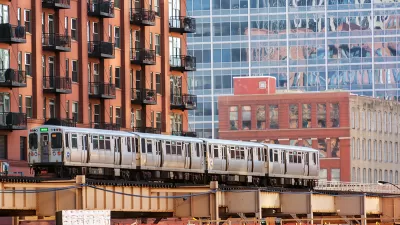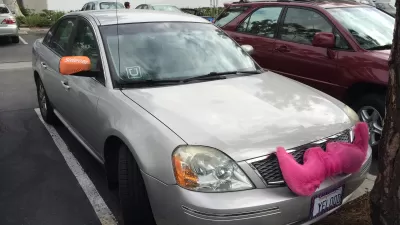Eric Jaffe discusses findings reported in the upcoming issue of Transport Policy that compare the relative effectiveness of subsidizing fares, regulating auto use, and expanding systems to increase transit ridership.
Using data from 41 major cities around the world, a group of Chilean researchers led by Louis de Grange of Diego Portales University ran a total of 16 econometric models comparing the three methods identified above.
According to Jaffe, "After controlling for key demographics the researchers found a consistent pattern: System expansion increases transit ridership a little. Car regulation increases it a lot. And fare subsidies have no effect at all."
"Despite the poor showing of fare subsidies, De Grange and colleagues don't mean to imply they should be eliminated. Rather, the numbers just suggest that subsidizing transit is the wrong policy to implement if a major city's main goal is increased transit ridership or decreased car use."
FULL STORY: What Really Matters for Increasing Transit Ridership: Rail Edition

Maui's Vacation Rental Debate Turns Ugly
Verbal attacks, misinformation campaigns and fistfights plague a high-stakes debate to convert thousands of vacation rentals into long-term housing.

Planetizen Federal Action Tracker
A weekly monitor of how Trump’s orders and actions are impacting planners and planning in America.

In Urban Planning, AI Prompting Could be the New Design Thinking
Creativity has long been key to great urban design. What if we see AI as our new creative partner?

King County Supportive Housing Program Offers Hope for Unhoused Residents
The county is taking a ‘Housing First’ approach that prioritizes getting people into housing, then offering wraparound supportive services.

Researchers Use AI to Get Clearer Picture of US Housing
Analysts are using artificial intelligence to supercharge their research by allowing them to comb through data faster. Though these AI tools can be error prone, they save time and housing researchers are optimistic about the future.

Making Shared Micromobility More Inclusive
Cities and shared mobility system operators can do more to include people with disabilities in planning and operations, per a new report.
Urban Design for Planners 1: Software Tools
This six-course series explores essential urban design concepts using open source software and equips planners with the tools they need to participate fully in the urban design process.
Planning for Universal Design
Learn the tools for implementing Universal Design in planning regulations.
planning NEXT
Appalachian Highlands Housing Partners
Mpact (founded as Rail~Volution)
City of Camden Redevelopment Agency
City of Astoria
City of Portland
City of Laramie




























